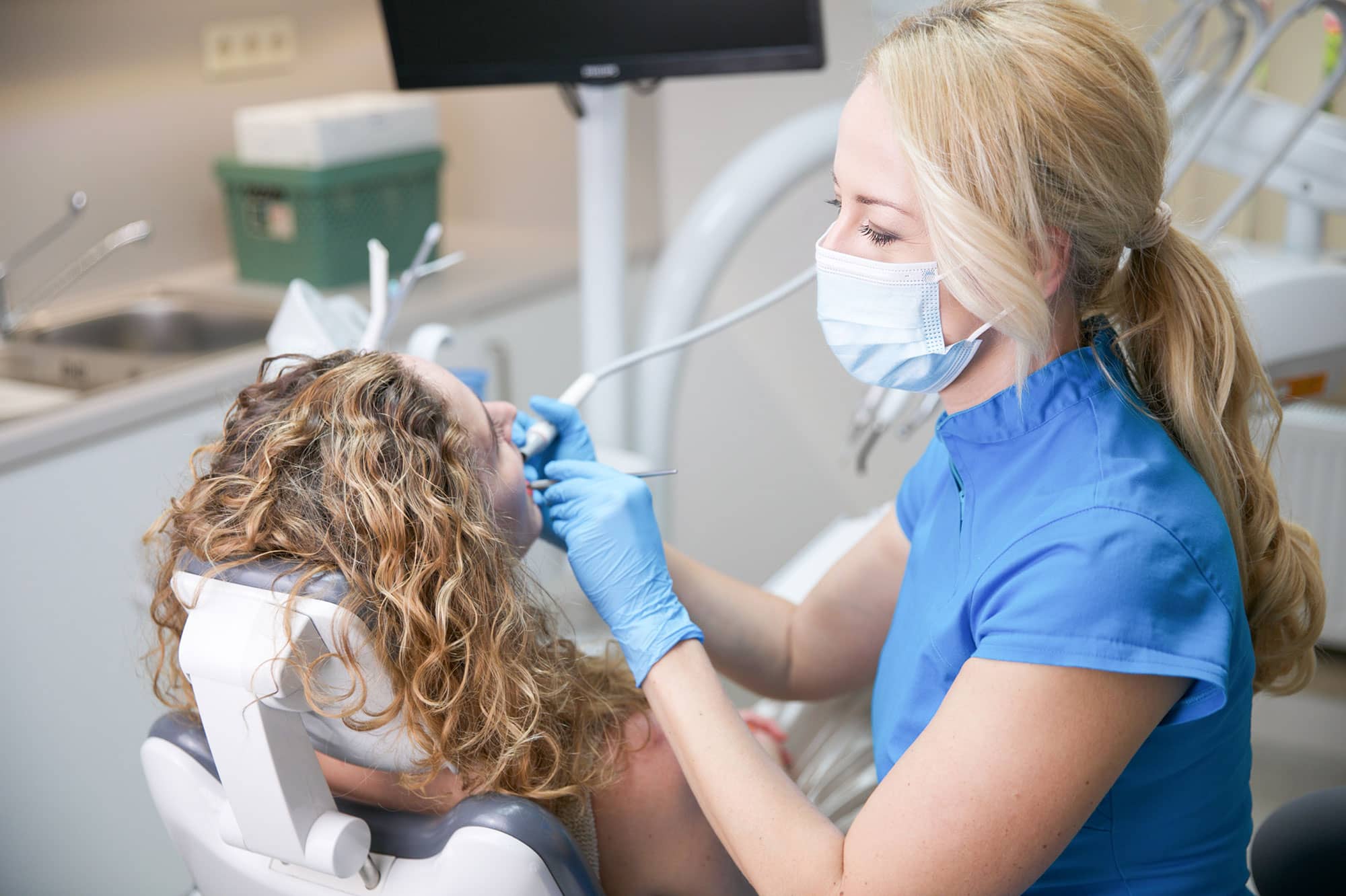In our previous articles, we discussed the potential complications of bone grafting and the connection between bone grafting and smoking. We are now going to now tell you what you should expect during the period following your bone grafting surgery. You can see what complications you might encounter after bone grafting, and you will also receive practical advice on the period following surgery. We consider the first few days following the intervention particularly important, so we will deal with this topic separately.
Our article discusses the following issues:
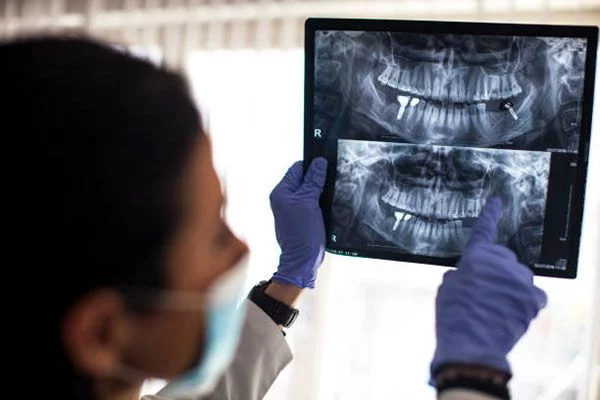
- Bone grafting as a surgical procedure
- What happens after jaw bone augmentation?
- What should we pay attention to after dental bone graft surgery?
- Dental bone graft recovery: Treatment of the symptoms and side effects, general information
- How do I know if my bone graft is healing correctly?
- Dental bone graft aftercare: What is the next step after bone graft?
Bone grafting as a surgical procedure
During bone grafting, we replace or rebuild bone loss in the jaw. After bone grafting, the new living bones may start to develop. Bone grafting requires a minor or major surgical intervention that must be carried out by a specialised surgeon.
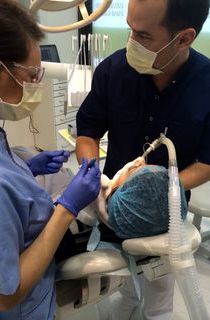
Depending on the type of intervention needed (the extension of the damage) and the type of bone grafting, the doctor makes a smaller or larger incision on the patient’s body. After that, they implant the substance required for the regeneration of the bone and close the wound. One of the methods applied in bone grafting is when they use the patient’s own implantable bone, and following the appropriate preparatory measures, they insert this bone into the jaw.
Such interventions, therefore, involve two surgical sites. The first surgical site might be either on the jawbone or another area of the body, depending on the doctor’s decision. The two surgeries are usually carried out on different dates, except when it comes to smaller interventions.
If the other methods – bone grafting using a donor’s bone or synthetic material – are applied, only one surgical site is necessary for the intervention.
Now we are going to discuss the symptoms, the rare or regular side effects and the potential treatment.
What happens after jaw bone augmentation?
After the bone structure, the development of new, living bones begins in the body and the graft gradually integrates into the existing bone.
What are the dental bone graft healing stages? – the first few days following surgery
No two bone grafting surgeries are identical. Each oral surgery is unique. Bone grafting surgeries may differ significantly; there are small wounds that will heal rapidly and larger surgical sites that are more serious. The first few days following surgery are essential in terms of the recovery process. Thus, this chapter addresses the general phenomena, by noting that every case requires a personalised consultation with the doctor.
Treatment of the wound and oral hygiene
After the bone grafting surgery, the doctor usually places a gauze pad on the wound that should not be removed for 30-60 minutes. If the bleeding has stopped, no further information or actions are needed besides following the instructions discussed in the next section.
In the case of more serious surgeries, further, bleeding can be expected. You are still under medical supervision during this phase. Thus, the medical expert treating you will perform the required actions. Some patients require a stent to be inserted above the teeth. This protective equipment may usually be removed later before eating.
During the days following the surgery, we must not irritate or touch the wound. The patient can first rinse their mouth only on the second day following surgery.
Foreign substances in the mouth
You might sense tiny crumbs in your mouth during the first few days after surgery. This may even occur even if you did not consume solid food. What is actually happening in such cases is that small granules from the surgical site of bone grafting get into the oral cavity.
To a smaller degree, the process is natural, and there is no need to worry. Still, it is very important that you follow the instructions about treating the wound thoroughly, meaning that you avoid irritating it. Do not look at the wound, and do not worry. However, if you sense a larger amount of crumbs in your mouth, you should definitely ask for medical help.
Lifestyle
On the day of the bone grafting surgery and the first few days following it, you should rest as much as possible. Sleep on your back if you can, and place a pillow under your head for support. Try to avoid doing physical activity, especially sports, during the first week. If possible, do not drive during this period either. It is essential that you follow the diet prescribed by your doctor, and that you avoid smoking and drinking alcohol.
How long does it take to heal after a dental bone graft? – The Ossointegration
This is the process where the bone graft fuses with your jawbone, creating a solid foundation for dental implants. It may take several months (usually 3-9 months) for complete ossification. The healing process and time interval may vary depending on the type of bone graft used, the size of the replaced area, your general health, and the management of any symptoms and side effects that may occur. Our surgeon will give you specific instructions and a personalized recovery plan with to-dos and follow-up appointments
What should we pay attention to after dental bone graft surgery?
Depending on the exact type of surgery, we must pay attention to the following issues:
- Swelling
- Bleeding
- Pain
- Risk of infection, antibiotics
- Oral hygiene
- Smoking
- Diet
- Prosthesis
- Discolouration, bruises
- Nausea, vomiting, dizziness
- Suture
- Allergic reactions
- Swallowing difficulties, muscle stiffness
- Further complications, etc.
In the next section, we are going to discuss what you should know about the issues listed above. We are going to provide you with tips and recommendations about the treatment of the symptoms and side effects.
Dental bone graft recovery: Treatment of the symptoms and side effects, general information”
In our previous articles, we have already discussed the lifestyle that needs to be adopted during bone grafting (information about sleeping, bleeding, pain management, diet, etc.) In the next section, we are going to briefly touch upon these issues, and then discuss further details about the period following surgery in particular.
Swelling, bleeding, pain
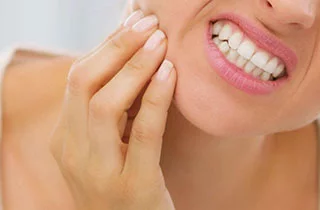 Swelling, bleeding and pain are symptoms that might occur to some extent after surgery, based on the exact type of intervention. In order to deal with the pain, the doctor will recommend – and prescribe if necessary – certain medicine. In some cases, the pain is not significant; it is similar to what patients feel during tooth extraction. The analgesics applied during the surgery will also ease this pain for a certain period.
Swelling, bleeding and pain are symptoms that might occur to some extent after surgery, based on the exact type of intervention. In order to deal with the pain, the doctor will recommend – and prescribe if necessary – certain medicine. In some cases, the pain is not significant; it is similar to what patients feel during tooth extraction. The analgesics applied during the surgery will also ease this pain for a certain period.
Icing will provide very helpful in the treatment of swelling, bleeding and pain that occur following surgery. In case of serious bleeding, the patients may bite on a sterile gauze pad. If the bleeding does not stop, you can also try to gently bite on a wet teabag. The tannin that the tea contains might contribute to the coagulation of blood; consult your doctor regarding how strong your bite should be. Try to stay calm. In case of more intense bleeding, consult your doctor.
Infection after the dental bone graft, antibiotics and anti-inflammatory agents
Consult your doctor if you experience infection or inflammation following surgery so that you are provided with adequate antibiotics or anti-inflammatory agents.
Lifestyle: oral hygiene, smoking, diet, wearing the prosthesis
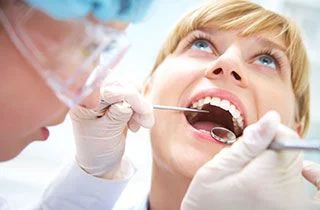 On the day of the bone grafting surgery, you can swallow the accumulated saliva, but try to avoid sucking motions and mouth washing. On the day following your surgery, doctors usually recommend washing your mouth with warm and salty water. This method helps eliminate the risk of contamination. On the first few days following your surgery, brush your teeth very gently with a soft bristle toothbrush. Starting on the date determined by your doctor, it will also be useful to use oral irrigators. The cleaner the wound the more rapidly it will heal.
On the day of the bone grafting surgery, you can swallow the accumulated saliva, but try to avoid sucking motions and mouth washing. On the day following your surgery, doctors usually recommend washing your mouth with warm and salty water. This method helps eliminate the risk of contamination. On the first few days following your surgery, brush your teeth very gently with a soft bristle toothbrush. Starting on the date determined by your doctor, it will also be useful to use oral irrigators. The cleaner the wound the more rapidly it will heal.
What not to do after a dental bone graft?
In our previous article, we have already warned that smoking makes the healing process more difficult. In more serious cases, even the intervention itself may be jeopardised. You should definitely let your doctor know that you smoke, and also try to avoid smoking in the first few days following surgery. If necessary, you can apply nicotine patches as well.
What to eat after bone building?
After bone grafting, when the anaesthetic effects have worn off, you are usually allowed to consume only fluids – water at first. Try to avoid sucking motions, and drink from a glass. Later, you should consume beverages and soft food containing a high amount of calories and proteins. Try to eat frequently, but in smaller portions. Avoid hard or sharp foods that require biting. Do not drink alcoholic or fizzy drinks. If necessary, have your doctor prescribe nutritional supplements and drinks containing a high amount of proteins and calories. It is usually not recommended to wear the existing prosthesis during the period following bone grafting. Replacements may hurt the surgical site or place pressure on it.
Discolouration and bruises
In some rare cases, you might experience discolouration of the skin, on the site of the swelling, during the second or third day after your bone grafting surgery. The colours may vary, from black, blue or green to yellow. This is a phenomenon that occurs after the expansion of blood under the tissues. It is rare, but it is not dangerous in itself, and it disappears soon.
Nausea, vomiting and dizziness
Following surgery, you may experience nausea, vomiting or dizziness as well. In such cases, you should try to lie down and rest, drink plenty of fluids in only mouthfuls, and avoid eating solid food. You should also avoid sudden movements. The doctor may prescribe medicine if necessary.
Sutures
The purpose of sutures is to decrease bleeding following surgery. Doctors usually apply absorbable sutures or sutures that easily fall out approximately a week after the bone grafting surgery.
Allergic reactions
In some cases, due to the medicine applied by the doctor, allergic reactions can occur following surgery. Thus, it is very important that you discuss all your known allergic reactions with your doctor during the consultation preceding surgery. Itching and rash may indicate allergic reactions. If you experience these, you should consult your doctor who will recommend or prescribe different types of medicine. In more severe cases, when your face and neck swell up, you must immediately seek help in the emergency department of the hospital closest to you or call an ambulance.
Swallowing difficulties and muscle stiffness
Following bone grafting, swallowing may often be challenging, and the muscles of the jaw are usually stiff. These are natural symptoms that accompany the healing process. Following our diet during this period may help us with this problem as well.
Further complications
Further complications may include numbness of the mouth, the chin and the tongue, mild fever, dryness of the mouth and a sore throat. If not serious, these symptoms are no cause for worry. In most cases, only a few of the symptoms described above may occur; pain, swelling and mild bleeding are the most frequent, which may disappear 1-2 days after your bone grafting surgery. If you experience any unusual or more serious symptoms, consult your doctor immediately.
How do I know if my bone graft is healing correctly?
In the first few weeks, you will gradually decrease pain and swelling and not bleed.
In the long term, the bone replacement must be stable and not dislodge. The gum tissue around the graft should be healthy—pink and firm. Our dentist takes X-rays regularly to monitor bone growth and integration.
Dental bone graft aftercare: What is the next step after bone graft?
Ideally, during the healing process following the bone grafting surgery, your body will accommodate the implanted substance. The development and strengthening of the new bones can start at this point. The body might also reject the implanted substance, and a second bone grafting surgery may be required.
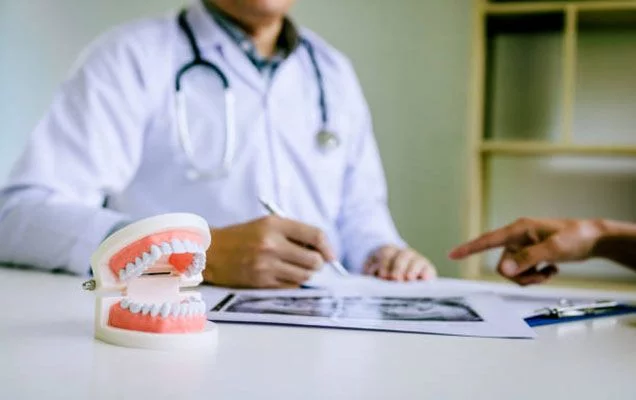 Depending on the status of the healing process, the surgical site can be suitable for other surgical interventions, including the insertion of dental implants. Bone grafting has seen enormous development during the past few years. In most cases, bone grafting surgeries are considered routine procedures, with a rapid healing process and minor symptoms.Check the dental bone graft costs
Depending on the status of the healing process, the surgical site can be suitable for other surgical interventions, including the insertion of dental implants. Bone grafting has seen enormous development during the past few years. In most cases, bone grafting surgeries are considered routine procedures, with a rapid healing process and minor symptoms.Check the dental bone graft costs
Our aim in this article was to prepare you thoroughly for the risks and issues that might arise during bone grafting. You must also be aware, however, that bone grafting surgeries are in most cases routine procedures that only involve minor pain. Therefore, we encourage you to listen to your doctor’s advice and follow their instructions thoroughly.
